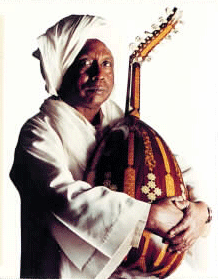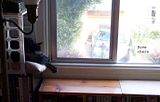Readers who were around when the Vietnam war was raging will recall the proposal to end that conflict put forward by commonsensical New Englander George Aiken, senator from Vermont: "Declare victory and withdraw." Sadly, that did not happen and the war continued until the withdrawal happened anyway, along with the loss of more than 58,000 U.S. military lives and perhaps as many as 4 million civilian lives as well.
We now find ourselves in another era of needless and tragic conflict, and we have another opportunity to bring it to an end: The Declaration of Peace. It is a call to end the war, and a commitment to take action to translate the call into a concrete plan for peace. The Declaration is a pledge to take nonviolent steps for the immediate withdrawal of U.S. troops from Iraq -- and to engage in peaceful protest if a comprehensive withdrawal plan is not established and begun by September 21, 2006, International Peace Day, just days before Congress adjourns for the fall elections.
People in the Bay Area, and especially those living in the Peninsula/South Bay region, have a wonderful opportunity to hear more about the Declaration of Peace from one of its premier advocates, Father Louis Vitale. Everyone is invited to an evening with Louie on Monday, June 5, in San Mateo. See below for details and check out the website
www.declarationofpeace.org for more information.
As I have reflected on this initative (a brainchild of
Pace e Bene Nonviolence Service), its necessity has become clear to me. Both as a nation and as a member of the global community we have many challenges, and we will fail to meet any of them until the economic, moral, and spiritual drain of the Iraq occupation has ceased. The Declaration of Peace is that comprehensive and concrete plan that we have been waiting for, and I hope that all peacemakers will respond to the call to support it in whatever way we can. To echo another Vermonter, "You have the power" -- we the people have the power to declare peace, and in the failure of our current political leadership, declare it we must. Join us on June 5th to learn more!
Network of Spiritual Progressives-San Mateo County,

Pax Christi Burlingame, and
Pace e Bene Nonviolence Service present
The Declaration of
Peace
An Evening with
Fr. Louis Vitale
Franciscan Priest and Nonviolent Action Advocate
Monday, June 5, 7:30 pm
Transfiguration Episcopal Church, Parish Hall
3900 Alameda de las Pulgas, San Mateo
The Declaration of Peace is a commitment to take nonviolent steps for a comprehensive, concrete, and rapid end to the war in Iraq. With nearly seventy percent of the people of the United States supporting an end to the war, there is a growing call to bring the troops home now. Together, people of faith and people of conscience have the power to declare a new era of peace and justice.
Join Fr. Louis Vitale to learn more about this proposal for bold, powerful and peaceful steps to help establish a comprehensive withdrawal plan. A longtime social activist, Louie co-founded the Nevada Desert Experience, a movement to end nuclear testing. He served 13 years as pastor of St. Boniface Catholic Church in the Tenderloin and recently completed a six-month sentence for nonviolent action to close the School of the Americas/WHINSEC at Ft. Benning, Georgia.
Freewill offerings to support the Declaration of Peace will be gratefully received.
For more information, contact: Anne Carey, 415-238-0704,
http://www.declarationofpeace.org/Create peace.
Create alternatives.
Create hope.
End the US war in Iraq.










